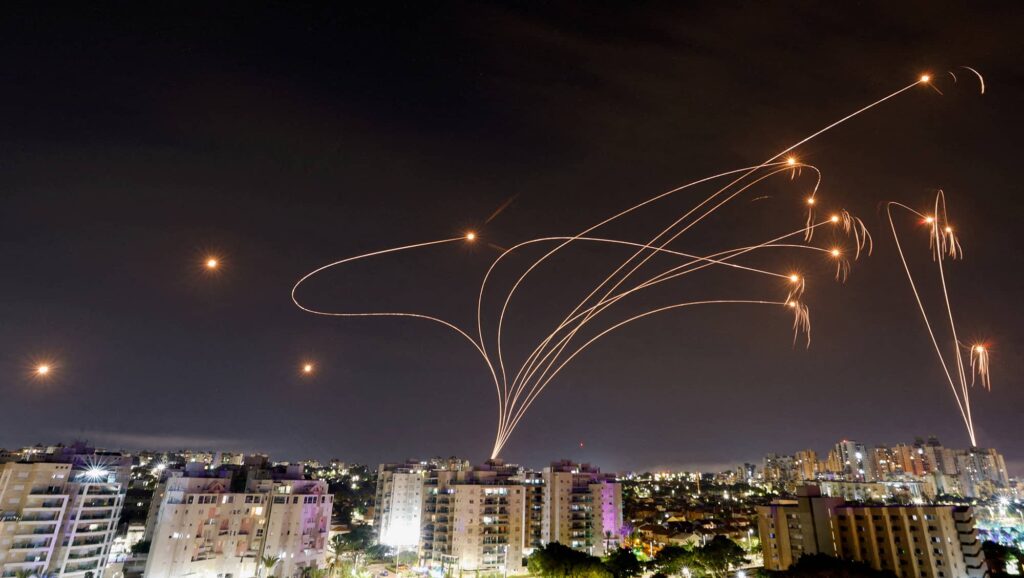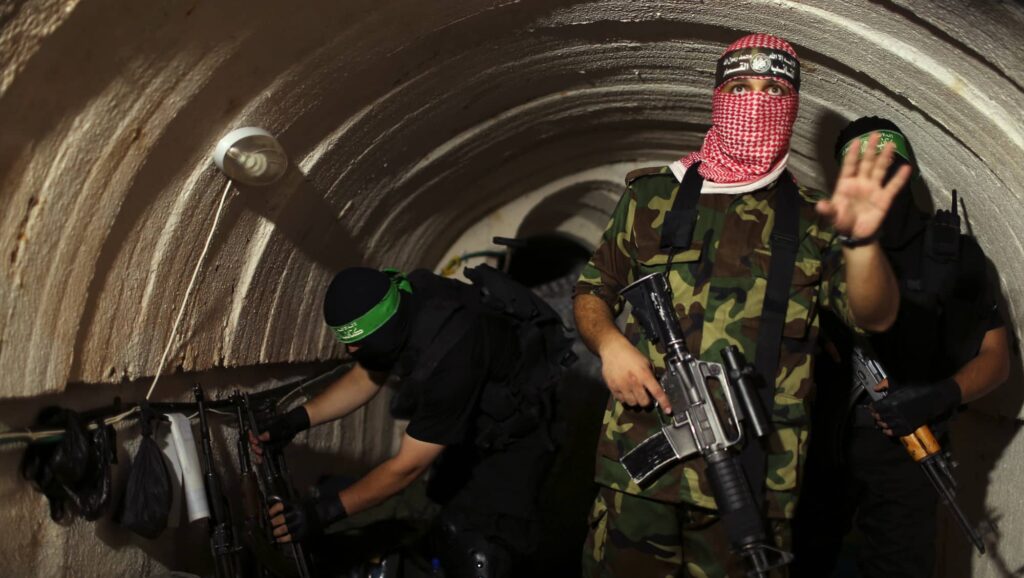In the aftermath of the Hamas attack on October 7, Israeli government and military chiefs have repeatedly promised the Israeli public that soon HAMAS will not rule over Gaza, politically or militarily. Hamas has been in power in Gaza for 16 years. Let’s review Israel’s recent history with Hamas, to show how inaction and postponing decision-making allowed Hamas to develop into the kind of enemy that could carry out the sophisticated, well-planned mass murder of October 7.
In June 2007, Hamas performed a military coup d’état in Gaza City and formally took over the Gaza Strip (hereafter “Gaza”), where it had already been the dominant political power for a number of years. Earlier, in January 2006, Hamas had won the elections for the Palestinian Legislative Council, which were held for the second time since its initiation in 1996. At that time Israel’s relations with the Palestinian Authority (PA) were at their height and negotiations over final status that could lead to the establishment of a Palestinian state, took place.
In 2007-2008, there was a clear division between the moderate part of Palestinian political scene in the West Bank and the terrorists who had taken over Gaza (Hamas was designated by the US Government as a foreign terrorist organization in 1998). At the height of negotiations with the Palestinians, on April 7, 2008, Israel’s foreign minister Tzipi Livni was unequivocal in summing up Israel’s policy: “Our strategic view is to strengthen you (the Palestinian Authority) and weaken Hamas.” Israel decided to introduce a blockade of Gaza, to prevent the flow of weapons into the Strip (spoiler alert: this measure didn’t work), but refrained from waging a military operation that would put an end to Hamas rule in Gaza.
Rocket and missile fire from Gaza into Israel began to sharply increase after Hamas took over in 2007. Hamas ensured that it had everything needed to wage war by building tunnels from the Egyptian Sinai. In the Israeli elections of 2009, Likud Party leader Benjamin Netanyahu adopted the slogan “I will liquidate Hamas rule”. Netanyahu emerged as a victor in those elections, but he never took down Hamas. At some point, this Netanyahu promise became a common joke among Israelis, a sort of shorthand reminder that politicians don’t fulfill their word.
At the same time, the government of Prime Minister Ehud Olmert and Foreign Minister Tzippi Livni also didn’t fulfill their promises to strengthen the Palestinian Authority and weaken Hamas. Netanyahu and his people blamed Mahmoud Abbas, the head of the PA, for terrorism and condemned Israeli leaders who met with him. Netanyahu implied there were no moderate Palestinians, essentially no difference between the rule of the PA in the West Bank and Hamas in Gaza. “Those who object to a Palestinian state should support the Israeli connection to Hamas and it’s strengthening”, Netanyahu said in a meeting with Likud party members.

From one military operation to another, Hamas showed resilience. It crushed its critics in Gaza and projected power into the West Bank. It continued to incite against Israel and Jews everywhere. In Friday mosque sermons, Hamas-funded imams promised to liberate all of Palestine. There was never any objective indication that Hamas was moderating or evolving into another version of the Palestinian Authority, meaning that its primary focus was managing the daily affairs of its people.
In 2017, Yahya Sinwar became the Hamas leader in Gaza. Sinwar originated from the Hamas military wing (unlike his predecessors) and many experts believed that he would be very dangerous. Some warned already in 2017 that his election as leader “brings the war closer”.
At the same time, some Israeli and many foreign Middle East experts were convinced that Hamas was undergoing a process of moderation. “Hamas presents a new charter accepting a Palestine based on the 1967 borders,” proclaimed the headline in The Guardian of May 1, 2017. Netanyahu responded in public that Hamas was trying to fool the world, but apparently those most fooled were himself and his public.
It’s impossible to even imagine this today, but in 2018 Likud leader Israel Katz, in his role as minister of transport, proposed to build an artificial island offshore Gaza to establish a port and airport for Hamas-led Gaza. This plan was harshly criticized by Avigdor Liberman, then minister of defense, and while it wasn’t advanced, it clearly indicated Netanyahu’s government belief that Hamas could be contained through economic measures and turned from a wolf into a sheep.
As a member at the Knesset Committee on Foreign and Defense Affairs from 2015, representing the center-left Zionist Union Party, I cannot remember any discussion of a plan to dismantle Hamas and bring in more moderate Palestinian leadership to Gaza. It was simply not in the cards. Israel had adapted to a reality of endless waves of violence from Gaza, hundreds of rockets on Israel’s south and center, all the time trying to appease Hamas instead of truing to fight it and change the reality on the ground in Gaza.

When Hamas dug tunnels into southern Israel, Israel bombed the tunnels. When it experimented with longer-range rockets, Israel developed new technological tools. What Israel did not do was focus on the root problems: Hamas rule in Gaza and the lack of a political solution in the West Bank. The prevailing flawed set of shared assumptions (conceptzia or “groupthink” in Hebrew, also described in the JST article on the Yom Kippur War of 1973) of Israeli’s military and political elite was that neither root problem had a short-term fix so they both could be managed. No decision at this time.
The opposition attacked Netanyahu and his government for appeasing Hamas but also didn’t offer any serious alternative and certainly nothing remotely approaching a need for toppling Hamas in Gaza. Instead, some plans for long-term arrangements between Israel and Hamas were discussed.
After the May 2021 military operation “Guardians of the Walls,” the ex-head of the Shin Bet (Israel’s internal security servidew) Yoram Cohen warned that Israel “was too accustomed to quiet”, and that its attacks against Hamas in Gaza were not equal to victory.
During the two years since “Guardians of the Walls,” it indeed appeared that Hamas was busy licking the wounds and restoring Gaza’s economy. Palestinian laborers were allowed to enter Israel for work in greater numbers, Egypt helped with some of the reconstruction, and Israel continued to convince itself that Hamas in starting another war. The basic understanding that Hamas is an Islamist terrorist organization that aims to destroy Israel and that this is its raison d’etre was nearly forgotten.
It’s not true that Israel’s military and political establishments didn’t focus on Gaza since 2007. They did. However, they were reluctant to take Israel into another bloody war involving Israeli soldiers in the narrow streets of Gaza. They also shared a political interest in a “divide and conquer” strategy pitting the PA in the West Bank and Hamas in Gaza, which involved propping up Hamas. Supporting this policy was a flawed conceptzia (groupthink) about Hamas that fooled Israelis into complacency while HAMAS grew and developed its plans for the October 7 operation, code-named “Al-Aqsa Flood.”
Now all illusions are gone; the prevailing groupthink has been found false. There is a radical fanatic force in Gaza that needs to be eradicated while at the same time Palestinians on the West Bank need to be engaged anew. The Knesset played absolutely no role in examining the policies of the government and the army during this long period of dangerously flawed groupthink. But there will be time enough for inquiries after the war.
After Hamas is defeated, Israel will need to thoroughly examine its processes of decision-making in every political and military institution in order not to let flawed “conceptziot” (groupthink) take over ever again.

